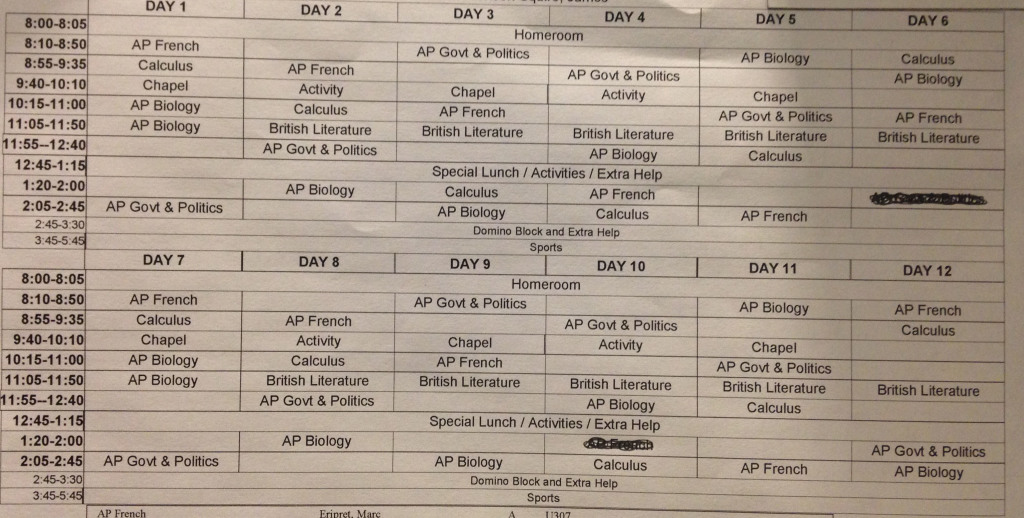Leo Peng ’15, Waylon Jin ’15: A committee has recently been established to reevaluate Episcopal’s current academic schedule, which has been in use for numerous years. The committee will consider the academic priorities of all three divisions of the Episcopal Academy: Lower, Middle and Upper School.
According to Dr. Cathy Hall, the Assistant Head of School, there are no major problems with the current schedule; however, the faculty is fully aware of the overwhelming workload some students experience. “We haven’t looked at our schedule comprehensively over ten years,” said Hall. “This is a healthy opportunity to step back and study what the primary program goals are; really asking ourselves some questions about what we want our students and teachers to do every day. This allows us to look at our schedules with options and alternatives, and really make sure what we do every day supports that.”
One of the goals that the committee will keep in mind will be to reasonably reduce the current student workload and re-evaluate class time. Haley Potter ’16 noted, “I like the current schedule structure we have, but I find that it’s hard to complete class discussion or cover whole topics with the amount of class time we currently have.” At this point there are no particular changes that the Academy is planning to make. It remains a possibility that no changes will take place if the committee decides the current schedule fits best for the Academy’s overall priorities.

Photo courtesy of Leigh Adelizzi ’15
Dr. Delvin Dinkins, Head of Upper School, indicates that the reevaluation process is currently making good progress. “We have convened unit-level faculty advisory committees whose charge is to open dialogue around our institutional and academic priorities and the ways in which the current schedule in each unit enhances or detracts from those priorities.” He also notes that, “We are doing some investigative work into what is and is not working relative to our program priorities and goals.” Because the reevaluation is only at an initial stage, there does not seem to be a detailed or in-depth plan for the investigation.
When asked about student involvement and influence in the review, Hall stated that the committee “will certainly be looking for ways to pull in student voices to gauge what works well and what would best support student needs,” and it will always be “interested in hearing from students and understanding how they experience EA.” Despite this, Hall noted, “It may not be practical to have student feedback on specific schedule changes, since the committee would have a lot of background and research to support the change that the students would not know.”
Although the faculty is making the move to discover new ways to improve the schedule, there is currently no evidence that suggests an actual change. Dinkins commented, “We will be conducting research, visiting other schools, and examining various scheduling options that might better serve our students, teachers, and school program as a whole.” Nevertheless, if changes are to take place in the future, they will only be made to benefit the student body. “There is not a preset agenda or known change at this point,” said Hall. “We should have clarity on our next steps, and know if any changes will be made to the schedule, sometime this winter.”